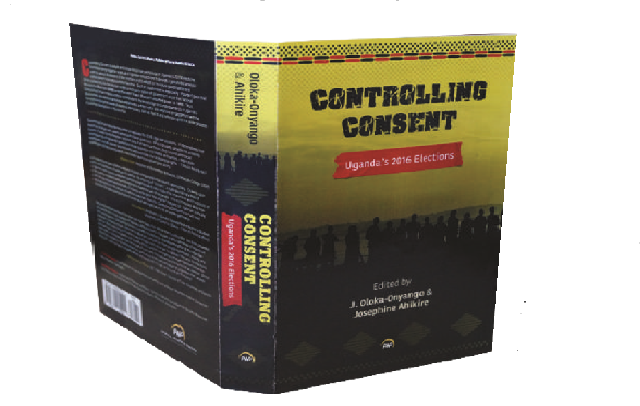
What is worrying though, for many, is that this much desired changeover could be a messy one as has happened in a number of African countries that have dispensed with long running leaders.
Museveni is ineligible to run again in 2021 unless Article 102(b) of the Constitution is amended, a process that seems already in the works.
The Article states a person is not qualified for election as President unless he or she is not less than 35 years and not more than 75 years of age. Museveni will be 77 years old by the time of the next election.
According to Controlling Consent, removal of the presidential age limit is the only remaining hurdle in Museveni’s apparent bid for a life presidency.
Removing the age bar will take away all pretence to democratic governance. It will further expose the sharp variance between what donors claim to be their highest priority – promotion of democratic governance, rule of law and respect for human rights – and what they really care about: pursuing economic/military interests.
“If age limits are removed from our Constitution – as they will eventually be – there is no way in which we can look forward to a deepening democracy in Uganda because it implies that the semi-accountable presidency we now have will be replaced with an imperial presidency with no possibility of peaceful change,” says Prof. Joe Oloka-Onyango, the book’s co-editor.
Although Museveni is on record saying he will “certainly not” cling to power past the age of 75 years, his ruling NRM party has not stopped mobilising to remove the age cap. It has been linked to a legal petition challenging age restriction for public service, which some observers see as a ruse for lifting the presidential age limit.
On September 30 this year, three people petitioned the Constitutional Court over the mandatory retirement of public workers, including the President. They say it is discriminatory, amounts to “ageism”, and has been outlawed in a number of countries.
“We believe retirement based on age should be voluntary and only after due evaluation and consideration of an individual’s mental and physical capacity to perform the specific task or job and not mandatory as it infringes on other fundamental human rights as enshrined in the 1995 Constitution,” reads their petition in part.
The case followed an introduction of a Bill in Parliament that sought, among other things, to rise the retirement age of judges. The Bill, too, was seen as preparing the ground for the scrapping of the age limit by binding the fortunes of the Judiciary with those of the President.
“Since the promulgation of the 1995 Constitution a number of safeguards against the creation and entrenchment of an imperial presidency have been whittled down,” according to Busingye Kabumba, a lecturer of Constitutional Law at Makerere University and one of the contributing authors in Controlling Consent.
“The challenge for those who would defend constitutional ideals, is that the threats to these ideals are today presented in more sophisticated terms, which appropriate the terminology and mechanisms of more progressive actors. Under this fashion, illiberal amendments to the Constitution are justified as exercises of popular sovereignty,” adds Kabumba.
Museveni’s previous tinkering with the Constitution in 2005 by removing term limits in order to extend his rule earned him criticism. He was accused of endangering the stability of the nation, which he had helped establish, by setting the country back onto a path to its troubled past. He, however, never suffered any aid cuts.
Similar criticism has been made since the disputed February 18 polls through which he extended his 30-year rule to date by another five.
****
editor@independent.co.ug
 The Independent Uganda: You get the Truth we Pay the Price
The Independent Uganda: You get the Truth we Pay the Price






These are international guests of the country of Uganda who know well their interests in this country much more than this African President. It was the same issue with Mobutu of the Congo whom they kept in leadership for some 40 years. One cannot blame them. What of Gaddaffi!